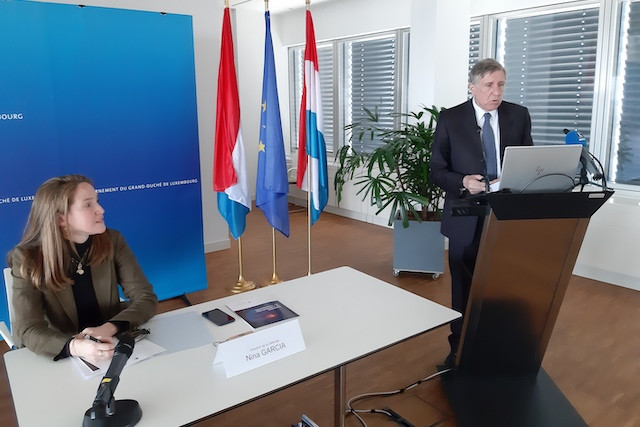“The strategy lays the foundation for the development of cyber defence capabilities that can be used in a national and international context,” said defence minister François Bausch (déi Gréng) at the launch event.
“Digitalisation and new technologies have given Luxembourg and the rest of the world great opportunity for development and progress but have also increased exposure to factors undermining our democratic values, our way of life and the stability of the international rules-based order,” an official statement said. “Luxembourg is facing new challenges through constant and pervasive activities below the threshold of conflict that require a broader view of security and defence policy, encompassing global environmental change and hybrid threats.”
The strategy’s four main objectives are the upskilling of military staff in cyber defence, enhancing national and international cyber cooperation, integrating cyber defence in all areas of Luxembourg’s military, and exploring cyber defence in the military’s research projects.
The ten-year cyber defence strategy will be reviewed periodically to update and adapt it as the landscape and technology of cyber warfare and digital attacks evolve.
As part of the strategy, Luxembourg is investing in a cyber range, a testing ground for digital defence that allows training of operatives against potential cyber threats.
The range will be hosted by Nato’s Support and Procurement Agency (NSPA), located in Capellen. The NSPA awarded Estonian cyber security company CybExer Technologies the contract to design the range in November 2020.
"Shortage of experts is one of the main challenges in cyber security, this unique training environment is going the help Luxembourg to fill the gap and we are pleased to be able to make it happen," Sergio Coronado, NSPA Chief Information Officer, said in a statement at the time.
The expense counts towards Luxembourg’s Nato contribution, with the strategy as a whole aimed at helping the grand duchy better meet its Nato and EU defence commitments, according to a statement.
All Nato members have pledged to spend at least 2% of their GDP on the military. Luxembourg plans to increase military spending to 0.72% of GDP by 2025, up from 0.6%.
It recently invested in a military observation satellite, bought an A400M transport aircraft and co-funded a multinational support plane programme. It is also mulling plans for a military hospital and spending €200m on refurbishing the NSPA’s facilities, among other projects.
